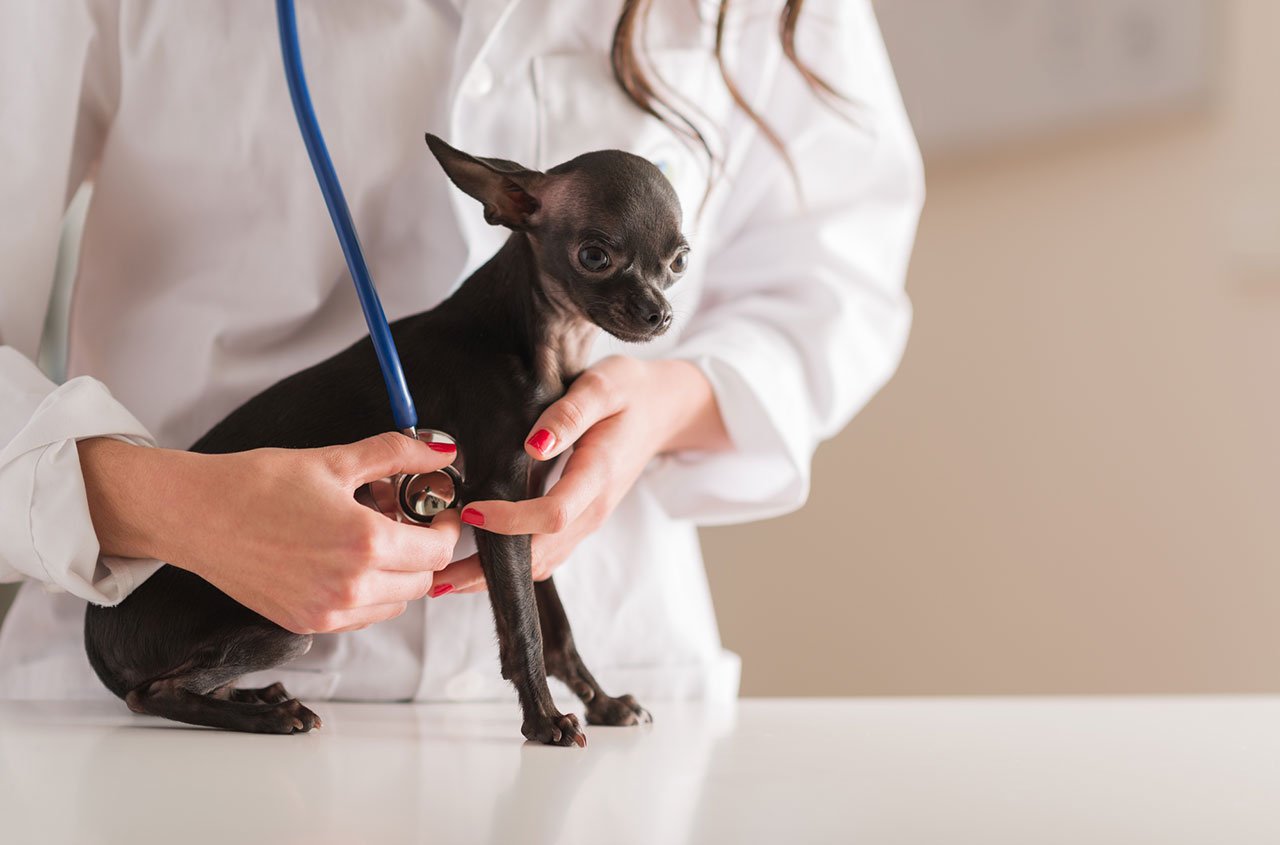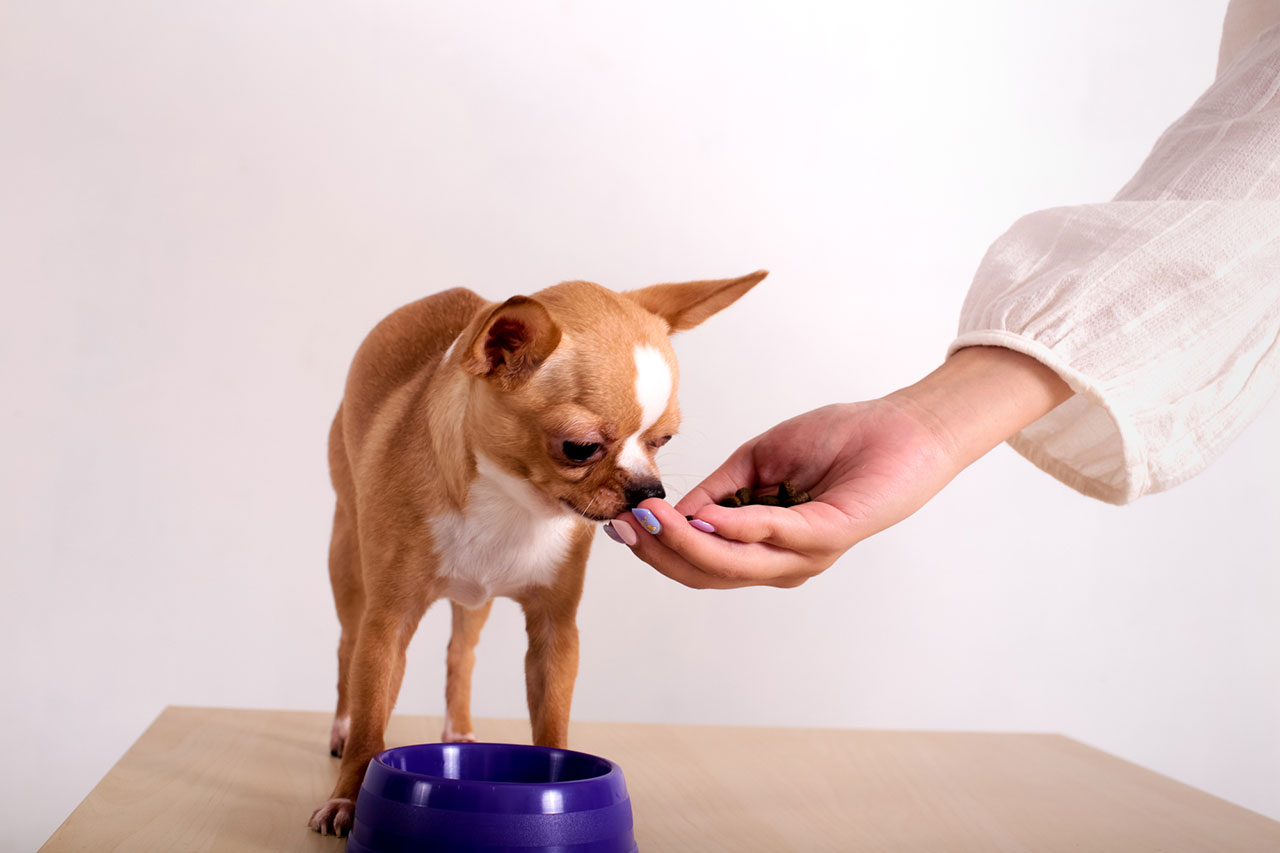How Big Will My Chihuahua Get?
Types of Chihuahua
It’s hard to understand the differences between the three sorts of Chihuahua if you’re thinking about getting one to pick the one that best suits your needs and way of life.

The apple head chihuahua is the most common type of chihuahua. They are named for their apple-shaped heads and have round, dark eyes. Apple head Chihuahuas typically weigh between 4 and 6 pounds, making them the largest of the three types. They are also the longest-lived of the three, with an average lifespan of 15 years.

Deer-head Chihuahuas are named for their deer-like heads, which are longer and narrower than apple-head Chihuahuas. They also have large, pointy ears. A Deer head Chihuahua typically weigh between 2 and 4 pounds, making it the smallest of the three types. They live for 12 years on average.

Teacup Chihuahuas are the smallest chihuahua, weighing in at less than 4 pounds. They are named for their small size, which makes them perfect for carrying around in a purse or bag. Teacup Chihuahuas have an average lifespan of 10 years.
What to Expect As Your Chihuahua Grows
Chihuahua owners might wonder what to expect regarding their puppy’s growth. Chihuahuas are the smallest dogs but they can still grow from puppyhood to adulthood. So, as your regular chihuahua develops, here are some things to consider.
Your healthy chihuahua will reach its full size around 18 months of age. But he may still fill out and bulk up until he is about two years old. So don’t be surprised if he doesn’t look like a fully grown adult chihuahua until then!
Your chihuahua’s current weight will also increase as he grows. According to a reliable rule of thumb, an adult chihuahua should weigh almost twice as much as he did when he was just a puppy. As a result, if your chihuahua puppy weighs 1 lb, you can anticipate him to grow to be roughly 2 lbs as an adult.
Your chihuahua’s personality will also change as he grows up. Chihuahua puppies are generally more energetic and playful than adult dogs. As your chihuahua gets older, he may become more subdued and calm. This is perfectly normal behavior for an adult chihuahua.
Talk to your veterinarian if you have any concerns about your chihuahua’s growth or development. They can answer any questions and help ensure your chihuahua is healthy and happy as it grows up.
Factors That Influence Your Chihuahua’s Growth
Ten different factors may influence the size of your chihuahua. These factors may include diet, exercise, genetics, and more. You may help guarantee that your chihuahua grows to their greatest potential by being aware of the potential factors that may affect its development.
Factor 1: Diet
Diet is probably the essential factor in a chihuahua’s growth. A nutritious, nutrient-rich diet can reach a chihuahua’s full height. Ensure you feed your high-quality chihuahua food appropriate for their age and activity level.
Factor 2: Exercise
All dogs need to get some exercise, but chihuahuas require it more than other larger dog breeds. Exercise helps to keep bones and muscles strong, which can impact a chihuahua’s overall size. Ensure you provide your chihuahua with plenty of opportunities to run and play.
Factor 3: Genetics
Genetics plays a big role in a chihuahua’s growth rate. They will stay on the smaller side if you have a small chihuahua. Conversely, if you have a large chihuahua, they may be more likely to reach the upper end of the size range. Genetics is, unfortunately, mostly out of your control, but you should still be aware of it.
Factor 4: Gender
Gender also plays a role in a chihuahua’s size. Male chihuahuas are typically larger than female chihuahuas, so if you have a male chihuahua, he may be more likely to reach the upper end of the size range.
Factor 5: Spaying or Neutering
Spaying or neutering your chihuahua can also impact their size. This surgery can slow down you dog’s rapid growth process, so your chihuahua may end up smaller than if you had not done the procedure.
Factor 6: Age
Age is another factor that can influence a chihuahua’s size. Puppies grow rapidly in their first year of life and reach their full adult size by around one year old. After that, they will not gain any more height or weight.
Factor 7: Breed
There are many different types of chihuahuas, and some breeds are naturally larger than the size of your puppy. They will likely be smaller if you have a toy dog breeds. If you have a standard chihuahua, they may be closer to the upper end of the size range.
Factor 8: Environment
The environment can also impact a chihuahua’s size. If you live in a warm climate, your chihuahua may be more likely to reach its full potential size. Conversely, they may be more likely to stay on the smaller side if you live in a cold climate.
Factor 9: Health
A chihuahua’s health is another key consideration when determining its size. If your chihuahua is healthy, it will be more likely to reach its full potential size. Conversely, if your chihuahua is not healthy, it may be more likely to stay as a smaller dog.
Factor 10: Owner
Lastly, the owner can also impact a chihuahua’s size. If you are a responsible breeder and is committed to assisting your chihuahua in reaching its full potential, you have a better chance of success. But if you are not as invested in your chihuahua’s growth, they may be more likely to stay on the smaller side.
By providing your chihuahua with the best possible care, you can help ensure that your chihuahua reaches its full potential.
Common Health Problems Associated with Large or Small Chihuahuas
There are both larger and smaller chihuahuas, which are one of the most popular dog breeds worldwide. While they’re generally healthy dogs, some health problems are more common in chihuahuas than in other breeds. Ten of the most typical health complications affecting chihuahuas are listed below:
1. Dental problems: Due to their relatively small size, chihuahuas frequently have crowded and improperly aligned baby teeth, which can cause dental issues like tooth decay and gum disease.
2. Ear infections: Chihuahuas are prone to ear infections because their long, floppy ears don’t allow air to circulate well. Ear infections can be painful and cause lasting damage if not treated promptly.
3. Luxating patella: This is a condition where the knee joint slips out of place and can be very painful. It’s more common in small breeds like chihuahuas and can often be corrected with surgery.
4. Hypoglycemia: This is low blood sugar, and it’s something that chihuahuas are especially prone to because of their small size. It can cause seizures and possibly death if not addressed right away.
5. Heart problems: Chihuahuas are also susceptible to heart problems, such as congenital heart defects and heart murmurs. If you suspect your chihuahua may have one of these ailments, it’s important to have a veterinarian examine them. These conditions can be deadly.
6. Breathing problems: Because of their small size, chihuahuas often have trouble getting enough air, and they’re also more prone to reverse sneezing (a condition where they make an odd snorting sound when they inhale). If your chihuahua has difficulty breathing, it’s essential to get them to a vet immediately.
7. Hydrocephalus: This is a condition with an abnormal accumulation of fluid in the brain, and it’s more common in small breeds like chihuahuas. It can be fatal if not treated promptly, so it’s important to be aware of the signs and immediately get your chihuahua to a vet if you think they might have it.
8. Eye problems: Chihuahuas are also prone to several eye problems, such as cataracts, glaucoma, and cherry eye. These conditions can cause serious vision problems or even blindness, so a veterinarian must check your chihuahua if you think they might have an issue.
9. Epilepsy: This condition causes seizures and is more common in small breeds like chihuahuas. If your chihuahua has epilepsy, it’s essential to get them on medication to control the seizures and ensure they don’t have any other health problems triggering them.
10. Chihuahua complex: This is a condition unique to chihuahuas, and a combination of genetic factors causes it. It can lead to a number of medical complications, such as heart, pulmonary, and neurological difficulties.
Chihuahuas are generally healthy dogs but prone to several health problems. It’s crucial to be aware of these conditions if you own a chihuahua and to have them examined by a vet if you suspect they do.
Providing the Best Nutrition For Your Growing Chihuahua
Even though this breed is small, they still require proper nutrition to grow up healthy and strong. This article will cover five ways to improve your chihuahua’s diet and ensure they get the best possible nutrition.
1. Feed them a high-quality diet.
Feeding your chihuahua a high-quality diet is a good idea to make sure they receive the right nutrition. Look for dog foods that are made with natural, whole ingredients and avoid those that contain fillers or artificial additives. A good rule of thumb is choosing a portion of food with at least 25% protein and 15% fat.
2. Avoid processed foods.
Just like humans, chihuahuas should avoid processed foods as much as possible. These meals frequently have high-calorie counts but few nutrients, which can cause weight gain and other health issues. Instead, stick to whole, natural foods whenever possible and look for products made with real ingredients.
3. Get them plenty of exercises.
Chihuahuas are active little dogs, so it’s important to ensure they get plenty of exercises. Take them for walks, go for runs twice a day, or play with them in the yard for at least 30 minutes each day. It can prevent obesity and maintain their health by doing this.
4. Make sure they’re getting enough water.
All dogs need water to survive, but since chihuahuas are prone to dehydration, they need it much more. As a result, make sure your chihuahua has access to clean, fresh water and consumes plenty of it throughout the day. A reasonable general recommendation is one ounce of water per pound of body weight each day.
5. Give them supplements if needed.
If your chihuahua is not getting all the nutrients, it needs from its diet. You may want to consider giving them supplements. Some common supplements for chihuahuas include omega-3 fatty acids, vitamin C, amino acids, and probiotics. Speak with your veterinarian about which supplements are right for your dog.
By following these tips, you can help ensure your chihuahua gets the best possible nutrition and grows up healthy and strong.
So, how big will your chihuahua get? The answer is – it depends. But with a bit of love and some good nutrition, you can help these small dogs reach their full potential size. And remember, even if your chihuahua doesn’t end up being as large as a golden retriever, that doesn’t mean they aren’t just as lovable! Thanks for reading our guide to finding out how big your chihuahua will get, and happy puppy parenting!



